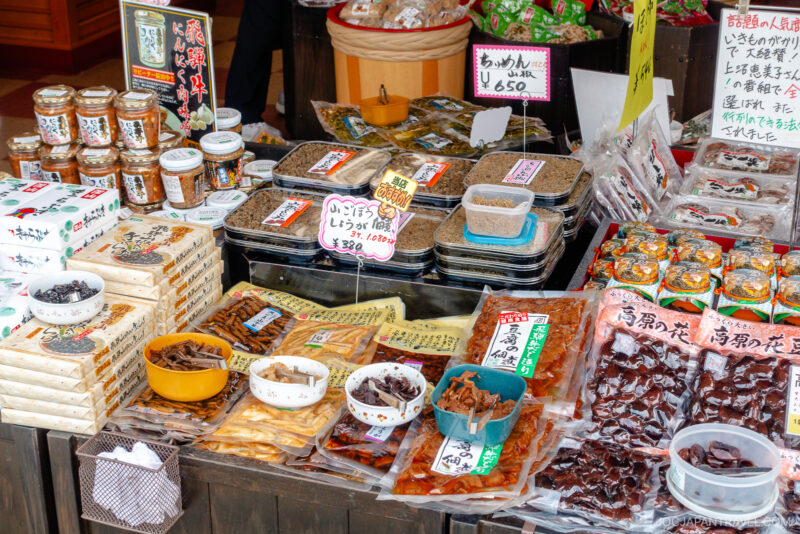This post may contain affiliate links. Please read our disclosure policy.
Step into Edo-era Takayama at one of Japan’s best-preserved merchant homes – Kusakabe Heritage House (日下部民藝館). Complete with soaring beams, folk art, and a quiet courtyard tea spot.
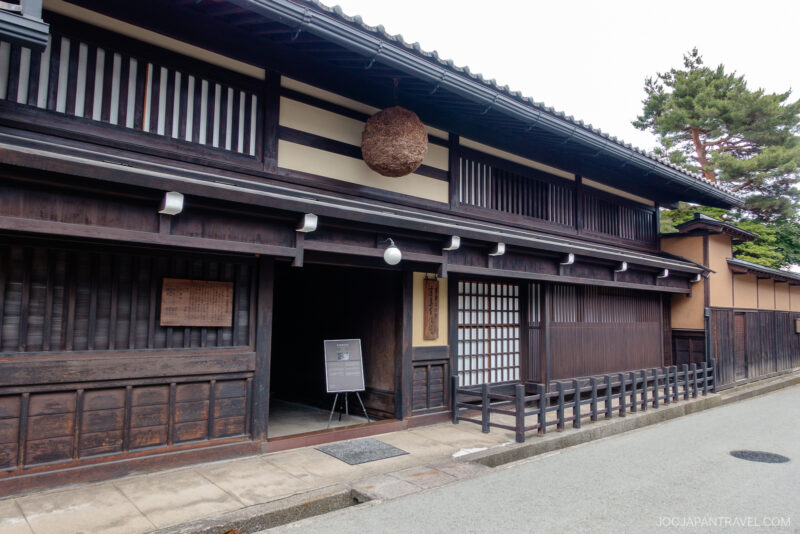
A Merchant Home That Brings the Past to Life
Takayama is a city where the past feels close. With well-preserved districts, historical homes, and mountain-town charm, it’s one of the best places to experience old Japan. One of our favorite stops was the Kusakabe Heritage House (日下部民藝館)—a beautifully restored residence built in the traditional merchant style.
The home invites visitors to step back into the Meiji period. We walked through rooms filled with antique tools, climbed narrow wooden stairs, and paused for tea in a peaceful courtyard. Everything about the visit felt thoughtful and calm, with craftsmanship that spoke for itself.
History Behind the Kusakabe House
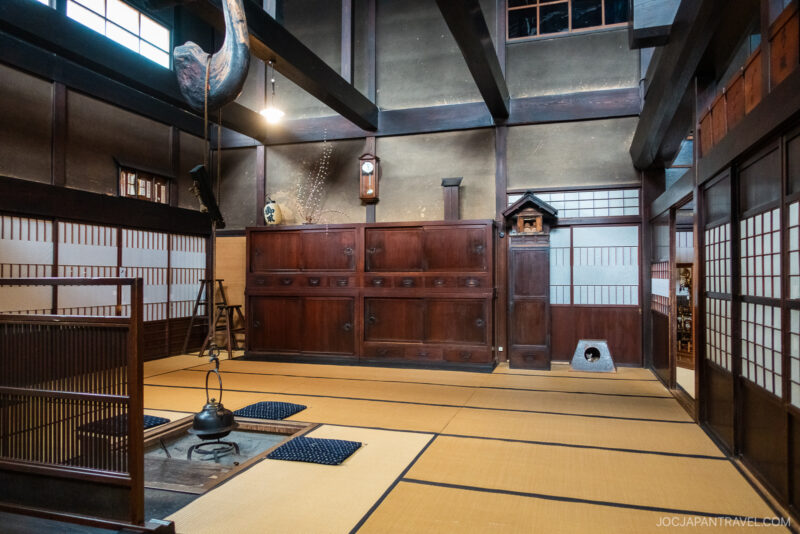
The Kusakabe family were wealthy merchants in Takayama who made their fortune dealing in local goods. After a fire destroyed their original home, they hired master carpenter Jisuke Kawashiri to rebuild it in 1875. He used traditional Edo-era design methods, including wooden joinery that didn’t rely on nails.
Today, the home stands as one of the best examples of Meiji-period residential architecture. It was designated an Important Cultural Property in 1966 and later opened to the public as a folk art museum.
It’s located just a few steps from Yoshijima-ke House, another former merchant residence. While both homes are worth seeing, most travelers choose one. We visited Kusakabe and didn’t feel like we missed out.
What You’ll See Inside
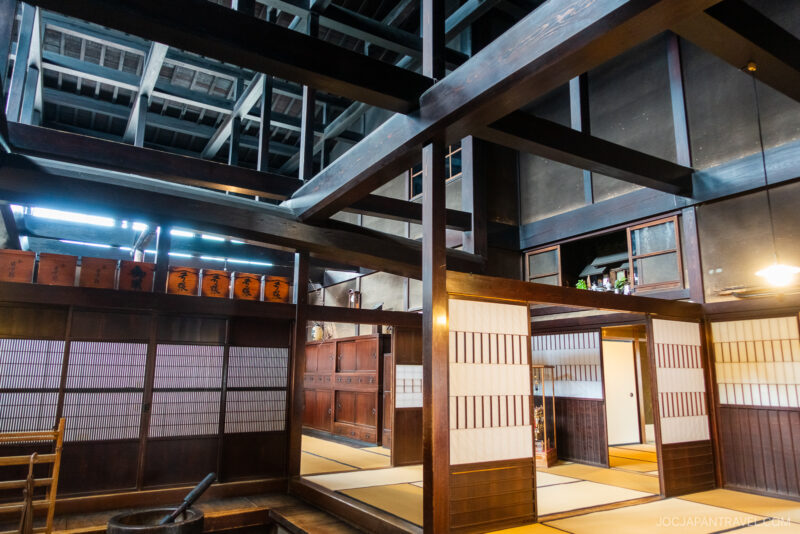
The first thing we noticed was the scale—massive dark beams stretched across high ceilings. The open design made the space feel both grand and welcoming. On the ground floor, each room features tatami mats, antique chests, and seasonal displays that reflect local craftsmanship and culture.
Upstairs, we found tools, ceramics, and household items from the Edo and Meiji periods. It felt less like a museum and more like a preserved home where you could imagine someone quietly sitting down to write or sip tea.
One of the highlights was the small courtyard garden between the house and kura (warehouse). There’s a bench where visitors can enjoy a simple cup of green tea, included with admission. It was a lovely place to pause and take it all in.
Folk Art and Seasonal Exhibits
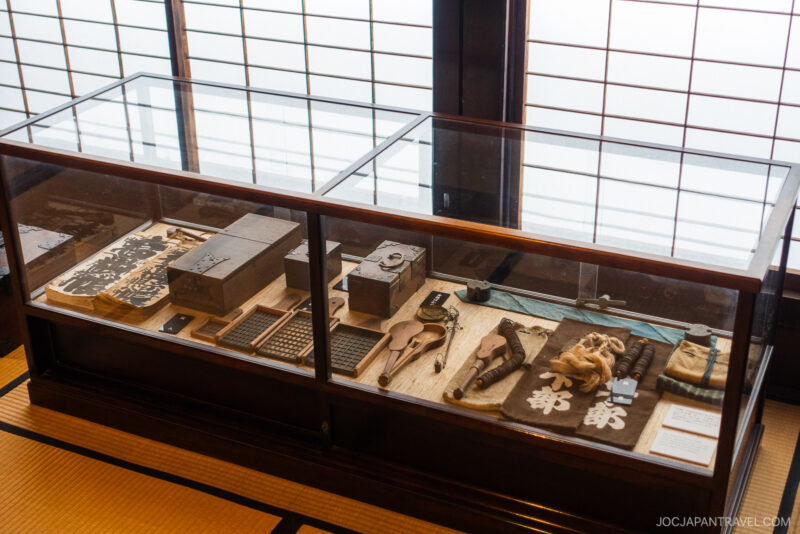
Inside the kura, we explored displays of folk art, lacquerware, and other handmade items. These small details helped us understand daily life and local culture beyond what we saw in the architecture. We appreciated how the house balanced history and experience.
How to Get to Kusakabe Heritage House
On Foot
- From JR Takayama Station, exit the east side and walk north until you reach Route 158. Continue straight on Route 158 and cross the Miyagawa River. After crossing the bridge, turn left and follow the road along the river. The Kusakabe Heritage will be on your right after crossing Enako River.
- Total travel time: 15–20 minutes on foot.
Pro Tip: Use Google Maps and search for “Kusakabe Mingeikan”—the path is scenic and well-signed in English.
Is Kusakabe Heritage House Worth Visiting?
Yes, especially if you love architecture, history, or quiet cultural spots. The craftsmanship is stunning, the exhibits are thoughtful, and the tea courtyard adds a peaceful break to your day. It’s an easy and enriching addition to any Takayama visit.
More to Explore Nearby
After admiring the elegant wooden architecture of Kusakabe Heritage House, explore more of Takayama’s preserved streets and cultural gems nearby:
- Takayama Old Town – Stroll through the historic merchant district lined with traditional shops and sake breweries.
- Takayama Jinya – Visit Japan’s last surviving Edo-period government building, complete with tatami rooms and gardens.
- Miyagawa Morning Market – Browse riverside stalls selling local crafts, pickles, and fresh produce.
- Nogawa Udon – Enjoy handmade udon noodles and warm hospitality at this family-run spot just a short walk away.



